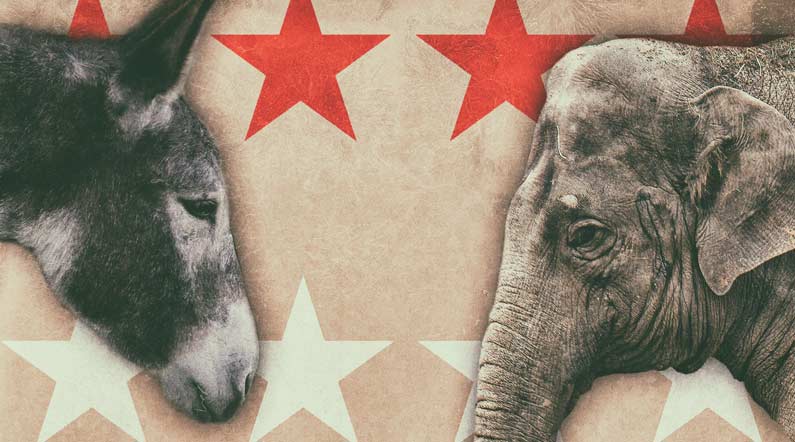In the evolving world of marketing, it’s not enough to be a 24/7 brand – always on call and ready to respond to competitive threats, customer opportunities and feedback. Today, it’s equally important to be connected to and be on the right side of societal issues that are relevant to your target audience.
In the past, brands, for the most part, waited out political and social crises that were not of their own making (e.g., BP, Exxon), without much impact. Consumers, politicians and policy makers had much bigger fish to fry. Not anymore.
Today and over the last few years, brands are increasingly being asked to take sides, make moral judgements and live their brand values more explicitly. Their hand is being forced by customers, shareholders, employees and deeper demands by society to “do the right thing” and be a good citizen or member of the community – to do good in the world.
In a recent column, Fortune editor Alan Murray highlighted three reasons why this marketing environment has radically changed:
- Democratization of information – everyone knows everything in near real time
- Speed of change – can’t wait for the C-suite to act
- Rising expectations, especially of millennials, who expect their employers to do good in the world
Now brands must act since consumer attention is turning toward them vs. the ballot box every 2 or 4 years. This has been building over the last few years. Independent of your political beliefs, here are some examples of how brands have changed their behavior over the last few years:
- Starbucks recently closed 8,000 stores to conduct bias training.
- The recent Parkland Florida shootings prompted brands like Delta, United, Met Life, Enterprise and others to eliminate discounts for NRA members.
- Related to the Parkland shooting, when commentator Laura Ingraham singled out one of the Parkland survivors with a misguided tweet, over 24
sponsors including Wayfair, Trip Advisor, Nestlé and Liberty Mutual removed their ads permanently - Southwest Airlines shareholders pressured management not to renew a 20+ year partnership with SeaWorld after the movie Blackfish came out.
- Brands like Pepsi, Budweiser and Nike pushed back hard on the NFL to do more to contain scandals related to domestic violence.
This doesn’t mean that all brands will act or are consistent with their values. Technology brands like Facebook and Google have been slow to react and have been accused of focusing too much on profits instead of in the best interest of their customers. Heightened media attention and the threat of Federal regulation has increased pressure on both companies. Just prior to Mark Zuckerberg’s testimony to Congress last month, the movement #DeleteFacebook was trending heavily on social media. Not only does this impact public perceptions but also can negatively impact hiring as the majority of Facebook and Google hires are millennials who have strong opinions around social justice. These millennials might wonder how Facebook can allow data collection by firms like Cambridge Analytica or might ask if Google is really living its mission of “Don’t Be Evil”?
It’s a very difficult environment and brands need to act quickly or face a backlash from their customers.
STEPS YOUR BRAND CAN TAKE
So, what’s a brand to do? Brands can’t put their head in the sand anymore. It’s not an option. Not only do they need to live in a 24/7 world, but they need to become leaders and reinforce the values they stand for. Their customers expect action. So as a marketer, what steps can you take to prepare your brand in a rapidly evolving more socially responsible environment?
WE SUGGEST THAT YOU IMMEDIATELY DO THREE THINGS:
Develop brand values and a brand charter that states what you are (or stand for) and what you are not (and stand against). It provides clear direction on how you will live in the real world – for both marketing efforts and how the C-suite responds to external issues. For example, Dick’s Sporting Goods CEO Edward Stack spoke out quickly after the Parkland shooting tragedy and said that they would not sell fire arms to anyone under 21 (the law allows 18-year olds to purchase firearms).
Monitor your marketing efforts actively so your brand behaves consistently across the channels in which it communicates. Don’t put your brand in a position that Kellogg’s found itself in when their ads appeared on websites (via programmatic buying) that were not consistent with their values. At least Kellogg’s reacted swiftly and decisively.
Revisit your brand positioning to reinforce positive brand associations and make sure they are aligned with your brand values. Relevant messaging will remind customers why they choose and like your brand.
We also recommend getting involved (e.g., Tom’s shoes, Bombas socks, etc.). You will inspire your customers, your employees and shareholders. If you need inspiration, see what your competitors are doing or look at what you perceive as gold standard companies. You don’t have to save the world, but you should stand for something that aligns with both your brand values and the values of your customers.
As a marketer, even if you do what you think is right for your brand, there might be some negative feedback from segments of your customer base. You must stay the course and feel confident your actions are consistent with who you are.
What’s your brand doing to become ready for a more active public profile and brand leadership role? Let us know.


Recent Comments